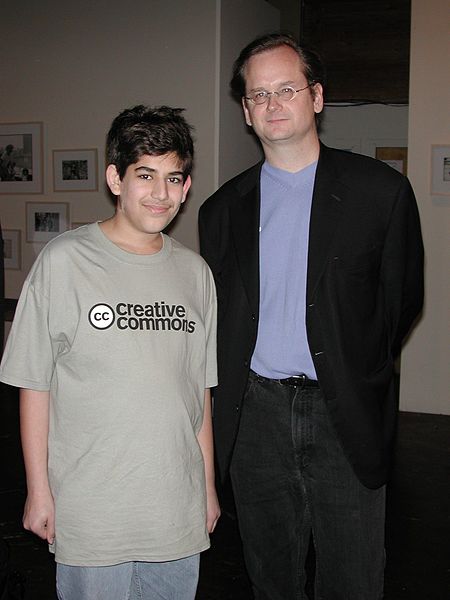11.11.13
Posted in Red Hat at 5:31 am by Dr. Roy Schestowitz

Summary: In praise of Red Hat, whose efforts to bring GNU/Linux to government are largely successful and hence pave the way for more of the same
RED HAT recently made some headlines for its involvement in a major government effort in the US [1,2]. This symbolised an exciting breakthrough of sorts, despite the fact that Red Hat had been deeply involved in government projects for a number of years now (notably in the defence sector). Like many businesses that jump on the open ‘cloud’ (e.g. OpenStack) bandwagon [3], Red Hat is increasingly positioning itself as a ‘cloud’ leader [4], challenging the likes of Canonical [5] in this age of ‘cloud’ and OpenStack hype [6,7]. Despite or because of the growing popularity of RHEL clones (primarily CentOS [17]), Red Hat is doing well and its CEO continues to provide decent leadership [8]. Based on press releases and announcements from early October [9-13] and even a few from September [14,15], Red Hat now emphasises virtualisation and hosting (or ‘cloud’, to use marketing terms). Red Hat’s shares are expected to rise [16] and it seems safe to say that the better Red Hat does, the better off GNU/Linux as a whole will be. Unlike some other companies, Red Hat shares a lot and is hardly parasitic. █
Related/contextual items from the news:
-
Red Hat has been pegged to rescue HealthCare.gov.
-
-
-
You know Red Hat best as the leading business Linux company. You may not know that Red Hat also wants to become the top OpenStack cloud business.
-
-
Jonathan Bryce, executive director of the OpenStack Foundation, talks about where the open-source cloud is headed.
-
OpenStack, the open source cloud program, has achieved multiple milestones this week. Cisco Systems (CSCO), Canonical, Hewlett-Packard (HPQ), Red Hat (RHT), VMware (VMW), Mirantis and others have announced major moves at this week’s OpenStack Summit in Hong Kong. From cloud services providers (CSPs) to VARs, it’s time for the IT channel to take a much closer look at this technology and its business implications. Here’s why.
-
That’s according to the man himself, blogging about how finding a mentor might not be as helpful as building a team, in his case, a “Team Jim.”
-
-
-
-
-
-
-
-
A stock is considered to be oversold if the RSI reading falls below 30.
-
Permalink
 Send this to a friend
Send this to a friend
11.09.13
Posted in FSF, GNU/Linux, Kernel at 3:53 pm by Dr. Roy Schestowitz
Linux alone is not enough for freedom

Summary: Analysis of some of the latest news about Linux, the world’s most widely used kernel
OWING TO (or due to) increasing corporate control over Linux, user-hostile mechanisms and “Trusted Computing” are being phased in, requiring user intervention [1]. This isn’t a new problem, just a continuation thereof. See, now that Linux development [2] takes centre stage [3,4] and a bug-free Linux is foreseen [5,6,7] (part of Torvalds’ vision [8,9] as of late, having moved from technical issues [10,11] to more strategic and managerial issues), there is more emphasis on quality (often referred to as pragmatism) and not much on freedom. Some more blobs are being added to Linux, making it less freedom-respecting than ever before. Linux-libre, whose mascot is Freedo (shown above), is trying to fight back against those blobs.
The Linux Foundation, run by corporations which make proprietary software for the most part, has an enormous influence over Linux [12,13,14] and unlike the FSF it has not much interest in freedom, just in practical benefits of the kernel (file systems and such [15,16,17,18,19]). Lennart Poettering keeps changing Linux in controversial ways [20] which make it to the core [21] and groups which include Microsoft are now entering the Linux Foundation’s sphere of influence [22,23]. Leaping ahead to Linux 4.x, development of 3.0 is already being neglected somewhat [24].
When talking about Linux always remember that technical merit — not freedom — is the top priority. It probably doesn’t bother so many people, but the fact remains that those who wish to maximise computing freedom should follow the FSF, not the Linux Foundation. █
Related/contextual items from the news:
-
-
Jon Masters summarises the happenings in the Linux kernel community around the release of the 3.11-rc1 kernel
-
Linus Torvalds closed the 3.12 merge window when he released 3.12-rc1. tty layer and scalability improvements received a special mention in the release announcement. The tty layer cleanups lead to per-tty locking which will result in better performance on some work-loads.
-
-
Linux operating system creator Linus Torvalds has proposed that Linux 4.0, an upcoming release of the open-source software, should be dedicated to stability and bug fixing.
-
Well, let’s not get ahead of ourselves here, but Linux founder and “keeper of the flame”, Linus Torvalds, has put developers and the rest of the world on notice that a Linux 4.0 is coming sooner rather than later, “I don’t want us to get to the kinds of crazy numbers we had in the 2.x series, so at some point we’re going to cut over from 3.x to 4.x, just to keep the numbers small and easy to remember. We’re not there yet, but I would actually prefer to not go into the twenties, so I can see it happening in a year or so, and we’ll have 4.0 follow 3.19 or something like that,” said Linus Torvalds in the Linux kernel 3.12 announcement.
-
Linus Torvalds is going away this week. He’s not saying where he’s going, or why, but “the fact that I’ll be traveling with very bad internet connection next week” was enough for the lord of Linux to push version 3.12 of the kernel out the door on Sunday.
Torvalds made the announcement that 3.12 is now with us on the Linux mailing list , saying “I didn’t really want to delay the release” despite “a number of driver reverts, and … an annoying auto-NUMA memory corruption fix series, but none of it was really worth delaying 3.12 for.”
-
LinuxCon 2013 Europe was this week… and videos from it have started being published. Here’s a video with our favorite Linux leader about the future of the Linux kernel. Enjoy!
-
Linux creator Linus Torvalds took the stage today at LinuxCon Europe in Edinburgh with Intel’s Chief Linux and Open Source Technologist Dirk Hohndel to discuss the present and future of Linux and answer questions from the community. They covered a range of topics including the upcoming 3.12 kernel release, the ideal characteristics of a kernel maintainer, the issues that keep Linus up at night, gaming on the Linux desktop, and more.
-
-
-
The Linux Foundation has adopted Open Virtualization Alliance (OVA) as one of its ‘Collaborative Projects’, to promote the development of the open source hypervisor KVM (kernel-based virtual machine).
-
If you’re a Linux fan and a car enthusiast, then you might be a little jealous of Rudolf Streif’s job. As the director of embedded solutions for The Linux Foundation, Streif is in charge of helping to foster the adoption of Linux and open source in the automotive industry.
-
-
There has been some urging for beta testers to try out “btrfs”. So I did. I tried it on one of my 13.1Beta1 installs. I would have tried it on two installs, except that the UEFI install had already given problems before I got to that point.
-
-
With the Linux 3.12 kernel due for release in several weeks time but all major changes behind us now, here are some file-system tests from this forthcoming kernel update. Tested Linux file-systems for this Phoronix article include EXT4, Btrfs, XFS, and F2FS. From these results, there are multiple instances of these file-systems running measurably faster than Linux 3.11.
-
With the Linux 3.12 kernel due for release in several weeks time but all major changes behind us now, here are some file-system tests from this forthcoming kernel update. Tested Linux file-systems for this Phoronix article include EXT4, Btrfs, XFS, and F2FS. From these results, there are multiple instances of these file-systems running measurably faster than Linux 3.11.
-
We’re late into the Linux 3.12 merge window and other prominent file-systems were already updated but on Thursday evening the Btrfs updates for the 3.12 kernel were finally published. With the new Btrfs pull does come some notable changes for this next-generation Linux file-system.
With the Btrfs pull request for the Linux 3.12 kernel merge window are a large number of fixes, performance improvements, and clean-ups.
-
I’ve found a disturbing trend in GNU/Linux, where largely unaccountable cliques of developers unilaterally decide to make fundamental changes to the way it works, based on highly subjective and arrogant assumptions, then forge ahead with little regard to those who actually use the software, much less the well-established principles upon which that OS was originally built. The long litany of examples includes Ubuntu Unity, Gnome Shell, KDE 4, the /usr partition, SELinux, PolicyKit, Systemd, udev and PulseAudio, to name a few.
-
Lennart Poettering has announced the release of systemd 207 and with it comes many changes.
-
The open-source, Software-Defined Networking project, OpenDaylight, is starting to reveal features in its first release.
-
Linux has become the 800 pound gorilla of the technology world. It is domination every single space it enters (including desktop where Chrome OS is gaining momentum).
-
Greg Kroah-Hartman announced the release of Linux 3.0.100 on Sunday and with that he intends to end-of-life this long-term kernel series in the coming days.
Permalink
 Send this to a friend
Send this to a friend
Posted in Microsoft at 3:09 pm by Dr. Roy Schestowitz

Summary: New revelations about the surveillance infrastructure laid out by the United States and those who bankroll it
WHENEVER we speak about Microsoft and the NSA we should remember that Microsoft pretty much kick-started PRISM — the programme under which everything which resides on a company’s pool of data becomes available to secretive spies, including the murderous NSA.
According to a new report from the New York Times [1], US taxpayers essentially pay to be spied on whether they like it or not. The CIA is doing this. iophk wondered: “Isn’t this also just the same data they are getting from social media and e-mail logging?”
We already know, based on plenty of evidence, that black (hidden) budgets are still where trillions of dollars come to disappear, with no public oversight whatsoever. What the CIA does here is simple; it provides corporate subsidies at taxpayers’ expense (or growing national debt), essentially paying private entities like Microsoft to help incriminate customers, based on private data and communications. We already know about misuses of the NSA powers, e.g. the handing over of data to the DEA. It’s not about terrorism. For the sake of national ‘interests’ (the interests of those in power), companies which may be running at a loss are getting subsidised. And at whose expense? At the expense of national debt, which the public as a whole is required to pay back.
Speaking of Microsoft and the NSA, there is a new Microsoft back door which the NSA can now exploit. As iophk put it, given some NSA background information, those back doors should be called what they are because ‘”zero day” is just a marketing term for holes that the vendor can’t be bothered to fix.’
The Internet seems to have become just another way for spies to raid homes (or digital equipment at homes) without a warrant and without being noticed. This is a serious problem. The Internet as a whole has devolved into a militarised surveillance apparatus — a fact that even the founder of the World Wide Web (and DRM apologist) seems to have finally accepted [2]. We need an alternative to the Internet because it is probably too late to fix the Internet. The Internet came from the US military and it is still serving the US military for the most part; it’s a control mechanism — control through total oversight and assassination/marginalisation of opposition. Even the CIA turns out to be deeply involved. █
Related/contextual items from the news:
-
The C.I.A. is paying AT&T more than $10 million a year to assist with overseas counterterrorism investigations by exploiting the company’s vast database of phone records, which includes Americans’ international calls, according to government officials.
-
Having already made his feelings perfectly clear about the revelations of NSA and GCHQ internet surveillance, inventor of the World Wide Web Sir Tim Berners-Lee is calling for an international protection system for whistleblowers.
Permalink
 Send this to a friend
Send this to a friend
Posted in GNU/Linux, Microsoft at 2:34 pm by Dr. Roy Schestowitz
The last CEO of Nokia, preceding a Microsoft mole pretending to be CEO

Summary: New evidence helps show that Stephen Elop was a Microsoft mole all along and that he is being rewarded for turning Nokia from Linux ally to Linux foe
“Stephen Elop,” explains Sosumi in IRC, “after crashing Nokia to the ground (baby!) is now positioned as one of the candidates for Microsoft CEO” (which wouldn’t be too shocking). Elop helped Microsoft amass a large number of Nokia patents, to be used offensively and sometimes get passed to patent trolls (for an assault on Android/Linux). Nokia, due to Elop’s intervention, turned from one of the leading developers of Linux into one of its biggest enemies. His first order as CEO was pretty much to dismantle all Linux efforts inside Linux. It became known as the “Burning Platforms Memo” and it is being referred to in this new analysis from Finland. Here are some fragments of interest:
“I came across this interesting article in Finland’s largest newspaper, Helsingin Sanomat (published more than a month ago on 29 Sept 2013) about Elop’s tenure while Nokia CEO (the article is in Finnish of course). It is mostly a biographical story of the departing Nokia CEO but it includes an interesting passage about the Burning Platforms memo, which may ring particular bells to our readers who were here in 2011 and lived throught its aftemath. Plus it sheds some light on the negotiations with Microsoft.”
Further down it says: “Also, no surprise from what we’ve seen of Elop’s style, but yeah, he clearly was doing his thing without bothering to tell the Board and the Board had to chase him afterwards about what he had been up to… So even more proof that yes, the actual damaging decisions and especially those damaging communications (Memo, timing of Windows announcement, sudden MeeGo death announcement etc) came before Elop had ‘remembered’ to inform the Board. Why was he doing this? He had his cool bonus that he was working towards.. Nice to ‘forget’ to inform your boss, eh?
“Lastly, we now know Elop was personally involved in the Microsoft sale – WOW what a conflict of interest and even Helsingin Sanomat speculates that Elop may have had private meetings on his regular trips to Redmond (because contrary to his original promise, he did not bring his family from Redmond to Finland.. the family was a convenient excuse to go meet up with his pal Ballmer, especially now that we learned that his marriage was so much a wreck, that the divorce proceedings were started already in 2012…)”
When people say something like “don’t pick on Microsoft employees” we should all think about Elop and the likes of him. Microsoft moles are a common problem in the industry and if we can’t recognise and speak about this problem, then we oughtn’t expect this problem to go away. Here in the UK, members of parliament are being named and shamed [1], which sure limits their ability to operate mischievously. █
Related/contextual items from the news:
-
MPs have come under attack for claiming £200,000 of taxpayers’ money to cover the cost of their energy bills. Some 340 MPs used the expenses system to pay for heating their second homes, according to the Sunday Mirror.
Permalink
 Send this to a friend
Send this to a friend
Posted in Action at 2:06 pm by Dr. Roy Schestowitz

Summary: Activism is being marginalised in the West (meaning Europe and north America for the most part), which makes it hardly any safer than it is for activists in third-world countries (meaning poorer countries, not ones which are neither with the US nor the USSR)
PESSIMISM is not a virtue, but sometimes it is important to be able to spot where — if anywhere — society becomes blind or apathetic towards its own regressions. Activism is a good indicator of where in the world the people are being oppressed and actions against activists help show where authorities are more oppressive. In so-called “developed countries” it sure seems like activism is increasingly being viewed and also treated as a crime or even terrorism. Watch the story in [1]; the US appeals court is basically treating activists like pirates (as in criminals at seas). There are some cases which are similar to it and Wikileaks likes to casually cite this important case. It demonstrates the extremely low level of tolerance that Western nations now have for activists. Russia is not much different and the whipping boy which is “Pussy Riot” helps show this [2,3,4]. Activists who use performance and stunts as a form of protest receive the same treatment as serious criminals and arguably ‘disappear’ in jail. Over in the United States, such people (minor offences if any at all) may even die in jail [5], or get anally raped by so-called law enforcement [6]. People are generally assumed guilty before any guilt is established and then they’re punished for it. This is like the CIA/Gitmo approach [7] being applied to the domestic population, including white people in Western nations [8]. Remember Aaron Swartz, the activist against copyright monopoly? It turns out now that secret services in the US knew they were driving him into depression before he committed suicide [9].
The bottom line is this: never assume your innocence just because injustice has been stereotyped the art of people in power in so-called ‘rogue’ nations or because people in power in Western nations only abuse people from so-called ‘rogue’ nations; if you are an activists, you are a target, no matter where you are. Rather than civilise the so-called ‘third world’, we in the West are inheriting the negative attributes of those whom we label “rogue”. A pile of evidence shows this every day. █
Related/contextual items from the news:
-
A FUGITIVE activist known for attacking Japanese whaling vessels off Antarctica insisted “we’re not pirates” as he addressed a US appeals court considering whether he and the organisation he founded should be held in contempt.
-
Nadezhda Tolokonnikova has disappeared into the gulag transit system between Russia’s penal colonies, and her family is worried that authorities are trying to crush her spirit.
-
One of the jailed members of the Pussy Riot protest band has vanished from sight since she was moved to a new prison 10 days ago, reports from Russia say.
The husband of Nadezhda Tolokonnikova told a US news website he had not received any news about her and her current location was being kept secret.
She had been on hunger strike at a penal colony in Mordovia.
She and another band member were jailed over a protest in a Moscow cathedral.
They were sentenced to two years’ imprisonment after performing a crude protest song in February 2012. A third band member was released on appeal.
-
Russian prison service says Nadezhda Tolokonnikova has been moved, after her husband expressed fears she had disappeared
-
-
The first doctor the police asked to perform the procedure refused. But the police then took Eckert to Gila Regional Medical Center, where, according to his lawsuit, he was first subjected to abdominal x-rays (no drugs), two anal penetrations with fingers (no drugs), three enemas (no drugs), another round of x-rays (no drugs), and, finally, sedation, followed by a colonoscopy of his “anus, rectum, colon, and large intestines.” No drugs. All of this was of course done without Eckert’s consent.
-
Doctors were asked to torture detainees for intelligence gathering, and unethical practices continue, review concludes
-
Former Guantánamo Bay prisoner David Hicks, an Australian citizen, has lodged an appeal with the US Court of Military Commission Review to overturn the bogus “providing material support for terrorism” conviction imposed on him in 2007.
-
The U.S. government noted in passing that Aaron Swartz suffered “depression problems” nearly two years before his suicide last January, according to a newly released Secret Service report.
Permalink
 Send this to a friend
Send this to a friend
Posted in GNU/Linux at 6:40 am by Dr. Roy Schestowitz

Summary: Dubious strategic direction at SourceForge and Slashdot, which are becoming more like Windows malware and Microsoft PR sites, respectively
LINKEDIN, a crowdsourced spying and surveillance network, tells me that Slashdot staff has been looking for information about me. Apparently they are curious to know who exposes their scams, including the propaganda they are beaming to longtime readers of the site. According to one of our contributors, Dice.com claims to have made a lot more money from Slashdot, but it doesn’t explain how. Does it get paid for PR? Is it selling users’ data? Nobody knows. But based on the following disturbing story, Dice.com treats visitors like merchandise.
To quote IDG, which quotes the GIMP project, the increasingly-Microsoft-friendly SourceForge is up to no good:
In the past few months, we have received some complaints about the site where the GIMP installers for the Microsoft Windows platforms are hosted.
SourceForge, once a useful and trustworthy place to develop and host FLOSS applications, has faced a problem with the ads they allow on their sites – the green “Download here” buttons that appear on many, many adds leading to all kinds of unwanted utilities have been spotted there as well.
The tipping point was the introduction of their own SourceForge Installer software, which bundles third-party offers with Free Software packages. We do not want to support this kind of behavior, and have thus decided to abandon SourceForge.
So there you have it.
As lirodon put it in IRC, have “you heard about how the evil Dice.com is violating the trust of SourceForge users?”
He called the above “stupid “wrapped” installers with borderline malware,” then cited “their support of those stupid “guess the download button” ads.”
To clarify the obvious, Techrights never sold any data about visitors. It doesn’t even keep such data. The data gets deleted periodically, unlike troll comments (there will always be zero censorship). The same policy will apply at Tux Machines, which we officially take under our wing today. Susan takes time to prepare for her wedding while I take over as main site maintainer. The first and only change to the site is removal of the Slashdot feed (DistroWatch Latest Releases feed replaces it).
Remember that Dice.com is just a business. It is trying to ‘monetise’ the sites above, it doesn’t really care about truth, freedom, sharing, etc. █
Permalink
 Send this to a friend
Send this to a friend
11.08.13
Posted in America at 2:45 pm by Dr. Roy Schestowitz
Coup d’état of the media

Photo by Steve Jurvetson
Summary: Further erosion of independence in the corporate media and another fine example of its overseers being run by the same corporations it’s supposed to oversee
It was curious to find out that the ombudsman of the Washington Post had been made redundant, as pointed out in an open letter from Ralph Nader [1]. The Washington Post, which rejected the leaks from Bradley Manning and did a lot to serve CIA agenda (or beam propaganda to China as part of a deal with the government), is now owned by the head of Amazon, which also has a massive new contract with the CIA (to help store data about people, nations, and so on). It is worth remembering Amazon’s proximity to Microsoft as well. The trend-setting media (more influential than Michael Bloomberg’s Bloomberg and perhaps even the New York Times) is now literally owned by a man whose net worth is $28.9 billion. Previously, before this embarrassing scandal, Bill Gates’ wife was on the board of the Washington Post, but it wasn’t ownership of the whole. At least we now know who the Washington Post needs to serve, as per the steering managers.
The United States has this apparatus called FCC, which stands for Federal Communications Commission. It is supposed to supervise the media (among other things), but given that it’s full of corruption and appointments from those who are seemingly regulated (revolving doors in the FCC were covered here before [1, 2, 3, 4]), expect nothing to be done about the loss of oversight over corporate media, which now in Bezos’ hands is more corporate-owned than before. The FCC has just shown us that corruption is its motto by appointing Tom Wheeler [2] (check his professional background).
It is important to always recall who owns the media which we choose to trust. There’s a business model and/or a political agenda, but hiding it is easy using the art of language. █
Related/contextual items from the news:
-
Mr. Bezos would do well to reestablish the longtime ombudsman post which was abolished in March of this year, presumably to save money. For an ombudsman’s role is not just to be an internal critic at the paper but also to be the reader’s coherent voice on the ways the Washington Post is being managed.
-
The confirmation of Tom Wheeler as chairman and Michael O’Rielly as a commissioner ends a deadlock over the appointment of two key FCC executives, after Republican lawmakers withdrew their opposition.
Permalink
 Send this to a friend
Send this to a friend
Posted in Bill Gates, Finance at 2:16 pm by Dr. Roy Schestowitz

Photo by Remy Steinegger
Summary: Another new example of exploitation of a crisis (caused by oligarchy) by oligarchs who wish to profit from it (privatisation)
Will Hill, a regular contributor of this site, reminds us of this topic which we no longer explore (no time to cover it anymore). The Gates Foundation continues to do its evil deeds under the pretense of charity and teachers are not stupid enough to think that Bill Gates, a college dropout, genuinely wants to improve education. “The article goes on to expose Bill Gates’ recent, self dealing and other interference in Colorado’s schools,” Hill says. Dora Taylor, the teacher who wrote an analysis based on this news, puts it like this: “it is the same oligarchic attitude that now dominates local education politics all over the country. Perhaps most illustrative of the trend is my home state of Colorado. This state has unfortunately become the national petri dish of the Education Oligarchs – people like the Walton family, of Wal-Mart fame; Bill Gates, chairman of Microsoft; Michael Bloomberg, the anti-union media mogul; and Philip Anschutz, the billionaire sponsor of right-wing Christian causes. These oligarchs and others aim to put everything – including our kids future – up for sale to the highest bidder in the Colorado education system.
“One way to see this is to look at how the Walton family and Gates have deployed their wealth to make an opportunity out of this square state’s infamous education finance problems. Leveraging their tax-subsidized foundations, they purport to come to the financial rescue of budget-strapped schools. Yet, they typically tie their seemingly altruistic beneficence to ideological demands.”
Taylor concludes by saying: “Some go further and push specific technologies into classrooms – technologies that, not coincidentally, their corporations stand to profit from. One example: Microsoft chairman Bill Gates has used $100 million from his foundation to ram his company’s corporate partner, inBloom, into the Colorado’s largest school district. InBloom collects student data to share with technology companies like Gates’ Microsoft, which then develop for-profit education software to sell back to schools. According to the New York Times, parents objecting to the surveillance-like technology feared “officials might be unable to evaluate inBloom objectively, given its backing by the Gates Foundation, a major donor to public schools whose grant money Jeffco was hoping to attract.” The school district ultimately received a coveted $5.2 million grant from the Gates foundation and – not surprisingly – decided to keep using inBloom.”
We covered inBloom before. It’s like Gates’ own mini-PRISM. What we generally have here is a huge problem and Gates is one of several who cause it. When the “corporate rule” [1] runs the country and exploits crisis (real or manufactured) it is no wonder that we see people-hostile policies being passed. Gates does this not only in education. In agriculture too, Gates pushes hard for private profits by trying to promote the agenda of Big Agriculture he invests in, including GMO [2]. Gates wouldn’t know charity even if it hit him in the face [3]. He was born a super-affluent boy. To him, making himself richer is the solution to poverty in the world. █
Related/contextual items from the news:
-
RT TV interview about how governing by crisis and brinkmanship is having a negative effect on the US economy.
-
The agribusiness giants would have us believe that our inherently unsustainable and morally reprehensible factory farming system is the only way to feed the world’s burgeoning population. But the facts prove otherwise. Factory farming is all about maximizing profits for a handful of the world’s largest corporations.
-
Studies have found the wealthy are less interested in the needs and motions of others and are not as helpful, compassionate or generous as those who possess less. One study, published in 2010, found people with less money are better at reading faces in a measure called empathy accuracy.
Permalink
 Send this to a friend
Send this to a friend
« Previous Page — « Previous entries « Previous Page · Next Page » Next entries » — Next Page »
Further Recent Posts
- Links 3/1/2017: Microsoft Imposing TPM2 on Linux, ASUS Bringing Out Android Phones
Links for the day
- Links 2/1/2017: Neptune 4.5.3 Release, Netrunner Desktop 17.01 Released
Links for the day
- Teaser: Corruption Indictments Brought Against Vice-President of the European Patent Office (EPO)
New trouble for Željko Topić in Strasbourg, making it yet another EPO Vice-President who is on shaky grounds and paving the way to managerial collapse/avalanche at the EPO
- 365 Days Later, German Justice Minister Heiko Maas Remains Silent and Thus Complicit in EPO Abuses on German Soil
The utter lack of participation, involvement or even intervention by German authorities serve to confirm that the government of Germany is very much complicit in the EPO's abuses, by refusing to do anything to stop them
- Battistelli's Idea of 'Independent' 'External' 'Social' 'Study' is Something to BUY From Notorious Firm PwC
The sham which is the so-called 'social' 'study' as explained by the Central Staff Committee last year, well before the results came out
- Europe Should Listen to SMEs Regarding the UPC, as Battistelli, Team UPC and the Select Committee Lie About It
Another example of UPC promotion from within the EPO (a committee dedicated to UPC promotion), in spite of everything we know about opposition to the UPC from small businesses (not the imaginary ones which Team UPC claims to speak 'on behalf' of)
- Video: French State Secretary for Digital Economy Speaks Out Against Benoît Battistelli at Battistelli's PR Event
Uploaded by SUEPO earlier today was the above video, which shows how last year's party (actually 2015) was spoiled for Battistelli by the French State Secretary for Digital Economy, Axelle Lemaire, echoing the French government's concern about union busting etc. at the EPO (only to be rudely censored by Battistelli's 'media partner')
- When EPO Vice-President, Who Will Resign Soon, Made a Mockery of the EPO
Leaked letter from Willy Minnoye/management to the people who are supposed to oversee EPO management
- No Separation of Powers or Justice at the EPO: Reign of Terror by Battistelli Explained in Letter to the Administrative Council
In violation of international labour laws, Team Battistelli marches on and engages in a union-busting race against the clock, relying on immunity to keep this gravy train rolling before an inevitable crash
- FFPE-EPO is a Zombie (if Not Dead) Yellow Union Whose Only de Facto Purpose Has Been Attacking the EPO's Staff Union
A new year's reminder that the EPO has only one legitimate union, the Staff Union of the EPO (SUEPO), whereas FFPE-EPO serves virtually no purpose other than to attack SUEPO, more so after signing a deal with the devil (Battistelli)
- EPO Select Committee is Wrong About the Unitary Patent (UPC)
The UPC is neither desirable nor practical, especially now that the EPO lowers patent quality; but does the Select Committee understand that?
- Links 1/1/2017: KDE Plasma 5.9 Coming, PelicanHPC 4.1
Links for the day
- 2016: The Year EPO Staff Went on Strike, Possibly “Biggest Ever Strike in the History of the EPO.”
A look back at a key event inside the EPO, which marked somewhat of a breaking point for Team Battistelli
- Open EPO Letter Bemoans Battistelli's Antisocial Autocracy Disguised/Camouflaged Under the Misleading Term “Social Democracy”
Orwellian misuse of terms by the EPO, which keeps using the term "social democracy" whilst actually pushing further and further towards a totalitarian regime led by 'King' Battistelli
- EPO's Central Staff Committee Complains About Battistelli's Bodyguards Fetish and Corruption of the Media
Even the EPO's Central Staff Committee (not SUEPO) understands that Battistelli brings waste and disgrace to the Office
- Translation of French Texts About Battistelli and His Awful Perception of Omnipotence
The paradigm of totalitarian control, inability to admit mistakes and tendency to lie all the time is backfiring on the EPO rather than making it stronger
- 2016 in Review and Plans for 2017
A look back and a quick look at the road ahead, as 2016 comes to an end
- Links 31/12/2016: Firefox 52 Improves Privacy, Tizen Comes to Middle East
Links for the day
- Korea's Challenge of Abusive Patents, China's Race to the Bottom, and the United States' Gradual Improvement
An outline of recent stories about patents, where patent quality is key, reflecting upon the population's interests rather than the interests of few very powerful corporations
- German Justice Minister Heiko Maas, Who Flagrantly Ignores Serious EPO Abuses, Helps Battistelli's Agenda ('Reform') With the UPC
The role played by Heiko Maas in the UPC, which would harm businesses and people all across Europe, is becoming clearer and hence his motivation/desire to keep Team Battistelli in tact, in spite of endless abuses on German soil
- Links 30/12/2016: KDE for FreeBSD, Automotive Grade Linux UCB 3.0
Links for the day
- Software Patents Continue to Collapse, But IBM, Watchtroll and David Kappos Continue to Deny and Antagonise It
The latest facts and figures about software patents, compared to the spinmeisters' creed which they profit from (because they are in the litigation business)
- 2016 Was a Terrible Year for Patent Trolls and 2017 Will Probably be a Lot Worse for Them
The US Supreme Court (SCOTUS) is planning to weigh in on a case which will quite likely drive patent trolls out of the Eastern District of Texas, where all the courts that are notoriously friendly towards them reside
- Fitbit’s Decision to Drop Patent Case Against Jawbone Shows Decreased Potency of Abstract Patents, Not Jawbone’s Weakness
The scope of patents in the United States is rapidly tightening (meaning, fewer patents are deemed acceptable by the courts) and Fitbit’s patent case is the latest case to bite the dust
- The EPO Under Benoît Battistelli Makes the Mafia Look Like Rookies
Pretending there is a violent, physical threat that is imminent, Paranoid in Chief Benoît Battistelli is alleged to have pursued weapons on EPO premises
- Links 29/12/2016: OpenELEC 7.0, Android Wear 2.0 Smartwatches Coming
Links for the day
- Links 28/12/2016: OpenVPN 2.4, SeaMonkey 2.46
Links for the day
- Bad Service at the European Patent Office (EPO) Escalated in the Form of Complaints to European Authorities/Politicians
A look at actions taken at a political level against the EPO in spite of the EPO's truly awkward exemption from lawfulness or even minimal accountability
- No “New Life to Software Patents” in the US; That's Just Fiction Perpetuated by the Patent Microcosm
Selective emphasis on very few cases and neglect of various other dimensions help create a parallel reality (or so-called 'fake news') where software patents are on the rebound
- Links 27/12/2016: Chakra GNU/Linux Updated, Preview of Fedora 26
Links for the day
























 Content is available under CC-BY-SA
Content is available under CC-BY-SA